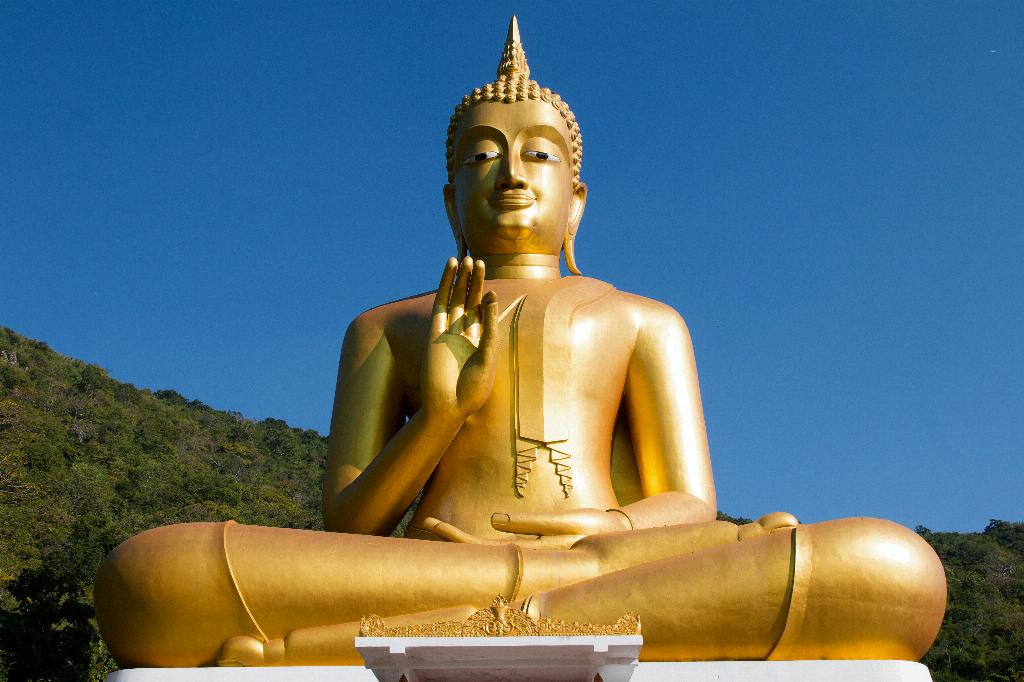Buddhism, a religion that originated in ancient India, has now spread to various parts of the world. With its emphasis on compassion, mindfulness, and self-discovery, Buddhism has attracted millions of followers around the globe. In this article, we will explore the countries where Buddhism is prevalent and the impact of this spiritual practice on a global scale.
History of Buddhism
Buddhism traces its roots back to the teachings of Gautama Buddha, also known as Siddhartha Gautama. Born in present-day Nepal around 563 BCE, Buddha became enlightened and began teaching others about the path to liberation from suffering. His teachings eventually spread throughout Asia, leading to the establishment of various Buddhist traditions.
Over time, Buddhism expanded its influence across different countries in Asia, including Cambodia, Thailand, Burma (Myanmar), Bhutan, Sri Lanka, Laos, and Mongolia. These countries have Buddhist majorities and boast rich Buddhist cultural heritage.
Buddhism in Asian Countries
Let’s take a closer look at some of the key Buddhist countries in Asia:
Thailand
Thailand, often referred to as the “Land of Smiles,” embraces Theravada Buddhism. It is deeply ingrained in the daily lives of the Thai people, with numerous temples, monks, and religious ceremonies. The teachings of Buddha are widely respected and followed, shaping the moral and ethical values of Thai society.
Japan
Japan has its unique branch of Buddhism known as Zen Buddhism. This form of Buddhism emphasizes meditation and mindfulness practices. Temples and Zen gardens are scattered throughout the country, serving as serene spaces for contemplation and self-reflection.
Sri Lanka
Sri Lanka is home to the Theravada tradition of Buddhism as well. It is deeply interwoven with the country’s culture and heritage. The ancient city of Anuradhapura and the sacred site of the Temple of the Tooth Relic in Kandy are significant religious landmarks for Buddhists in Sri Lanka.
Cambodia
Cambodia boasts a profound connection to Buddhism, specifically Theravada Buddhism. The magnificent Angkor Wat temple complex in Siem Reap is not only a UNESCO World Heritage Site but also a symbol of the country’s spiritual devotion.
Myanmar
Myanmar (formerly known as Burma) is deeply rooted in Theravada Buddhism, with countless pagodas and monasteries spread across the country. The golden Shwedagon Pagoda in Yangon is a significant pilgrimage site visited by devotees from around the world.
Tibet
Tibet is renowned for Tibetan Buddhism, which incorporates elements of indigenous belief systems and ancient Tibetan traditions. The spiritual leader, the Dalai Lama, plays a vital role in preserving and spreading Buddhist teachings in Tibet and beyond.
Vietnam
In Vietnam, Mahayana Buddhism is widely practiced. Monks and nuns are highly respected, and Buddhist temples can be found throughout the country. One of the most notable temples is the Perfume Pagoda, nestled in the Perfume Mountains.
Buddhism in Non-Asian Countries
Buddhism has transcended its origins in Asia and has found its way into other corners of the globe as well. Here are some countries outside of Asia with significant Buddhist populations:
United States
The United States is home to a diverse Buddhist community, spanning various traditions such as Zen, Tibetan, and Pure Land Buddhism. Cities like Los Angeles and San Francisco have become hubs for Buddhist practice and study.
Canada
In Canada, Buddhism has gained popularity, particularly in cities like Vancouver and Toronto, where meditation centers and Buddhist temples are prevalent. The Canadian Buddhist community encompasses practitioners from different cultural backgrounds.
Australia
Australia’s multicultural society has embraced Buddhism, with a significant number of Australians identifying as Buddhists. Buddhist centers offering meditation classes and teachings can be found across the country.
Brazil
With its diverse religious landscape, Brazil has experienced a rise in interest in Buddhism. The Japanese-Brazilian community has played a vital role in the introduction and dissemination of Buddhist practices in the country.
United Kingdom
The United Kingdom has a growing Buddhist community, influenced by various traditions such as Theravada, Zen, and Tibetan Buddhism. London, in particular, is home to numerous Buddhist centers and organizations.
France
France has embraced Buddhism, with a significant number of practitioners and establishments. Buddhist temples, retreat centers, and monasteries throughout the country offer opportunities for meditation and spiritual growth.
Global Impact of Buddhism
The impact of Buddhism extends far beyond the boundaries of individual countries. Its timeless teachings on mindfulness and compassion have gained popularity worldwide, contributing to the growth of practices like meditation and yoga.
Buddhism has influenced modern psychology, with concepts such as mindfulness and non-attachment forming the basis of many therapeutic approaches. Additionally, Buddhist philosophy has inspired environmental and social activism, promoting values of interconnectedness and harmony.

Conclusion
Buddhism’s influence spans continents, with countries across Asia and beyond embracing its teachings. As Buddhism continues to spread, it offers invaluable insights into finding inner peace, cultivating compassion, and living a meaningful life. Whether it’s in the ancient temples of Cambodia or the meditation centers of the United States, Buddhism offers a transformative path for individuals seeking spiritual growth.
So, which country in the world is Buddhist? The answer goes far beyond a single country. Buddhism has become a global force, inspiring millions around the world to embark on a journey of self-discovery and transcendence.
